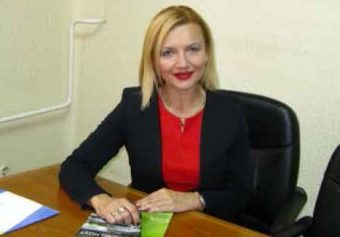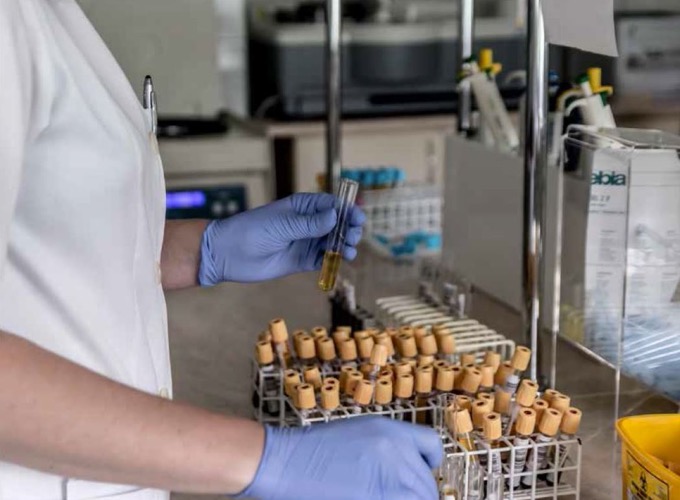SEPA AND BATUT: Key Partners for Improving EcoHealth
The concern about the state of the whole ecosystem, contained in the conceptual goals of EcoHealth, requires interaction between all expert services and institutions of the health system and environmental protection. In order to present that systematic health care is systematic in our country, we talked to representatives of the two most important institutions of the Republic of Serbia that conduct activities in the mentioned area.
EP: How is EcoHealth institutionally defined and what kind of approach does it imply?

Filip Radovic: Coinage EcoHealth primarily signifies the field of research on the impact of changes in the ecosystem on human health. In recent years, this research discipline that examines changes in biological, physical, social and economic environment and connects them with human health, has been transferred from research centres to institutions where it gathers doctors, veterinarians, ecologists, economists, spatial planners and many other experts in the field of social and natural sciences, in order to make certain actions on the basis of the research results so as to prevent and adapt to the resulting changes in the environment, and to eliminate their consequences.

Verica Jovanovic: EcoHealth can be defined as a multidisciplinary concept that makes a part of public health, that is, the level of health and well-being, and society, communities, and h together pursue it. EcoHealth is achieved by the symbiosis of ecosystems and activities that are carried out in order to preserve and improve health globally. Activities from the ecosystem are tools for collecting the necessary data, and the analysis of the data sets out the most important measures for the preservation and promotion of a healthy environment, which is a prerequisite for the health of the population. An interdisciplinary, cross-sectoral approach involves interface of content from one area to another, from the environment to the preservation and improvement of health, in order to fully solve certain problems and challenges we face in everyday life, work and the environment.
EP: In which sector is the relationship between the state of the environment and public health reflected best?
Filip Radovic: More than five million people worldwide die from diseases caused by impure water in just one year. It is estimated that due to the lack of accessibility to drinking water, poor health and hygiene conditions, about six thousand children in the world lose their lives on daily basis.
Numerous risks to human health threaten from all sectors of living and working environment. Every year, 100 million people suffer from malaria, and about two million people die. This disease is transmitted by mosquitos and high temperatures are suitable for their reproduction. The temperature rise trend is present due to climate change, and responsibility for this is multisectoral.
Verica Jovanovic: The consequences for health due to the use of inadequate drinking water are occasionally present in our country. On such rare occasions, institutes play a significant role in prescribing necessary measures for controlled water supply and for curing the resulting problem, in accordance with the legislation of the Republic of Serbia.
 However, the role of the Institute is primarily reflected in the supervision of regular controls of the correctness of drinking water and the implementation of measures to improve the quality of water supply.
However, the role of the Institute is primarily reflected in the supervision of regular controls of the correctness of drinking water and the implementation of measures to improve the quality of water supply.
EP: How do you assess the awareness of the population about the importance of preserving public health and the environment in Serbia and globally? Are these topics sufficiently represented in the public?
Filip Radovic: Consciousness about the importance of preserving the environment and its improvement is certainly present in a significant part of the community. However, it is questionable whether public information media give primacy to these topics in the reports. In recent months, there has been a noticeable increase in the media coverage of topics in this area, and those who perform this activity are primarily representatives of state bodies and local self-government.
Verica Jovanovic: Instead of assessing the general public’s awareness of the importance of preserving health, and understanding the impact of the environment on health, I would emphasize the importance of cooperation with the media. Partnership relations with institutes and competent ministries allow even more media space for this important topic.
From the standpoint of each community, environmental protection and conservation is a priority of society’s overall importance. A healthy environment is a basis for the development and preservation of human existence and an important factor for the quality of life of the population. Therefore, the public health institutions are especially concerned with environmental impacts, which can lead to unfavourable results for citizens’ health and they continuously carry out various promotional activities, lectures, discussions, and publications in order to exchange information and improve citizens’ awareness of the importance of preserving the health of the environment. The mission of the Institute of Public Health of Serbia is dedicated to promotion and preservation of the overall health of the population, which at the same time includes the promotion of EcoHealth.
The Health Promotion Centre of Batut, among other target groups, including school children, has been conducting numerous promotional campaigns in this area to improve the awareness of the entire population about EcoHealth. The Centre for Hygiene and Human Ecology defines the key topics and areas in which promotional activities are required.
EP: What specific knowledge and infrastructure are needed to institutionalize EcoHealth?
Filip Radovic: Essential activities that EcoHealth strives to provide are innovative and practical solutions to reduce the negative impact of changes that occur in the ecosystem on health. In this sense, the support of the scientific and educational community is necessary, primarily through the training of highly educated staff.
Verica Jovanovic: Professional services and institutions from the systems of health and environmental protection should prepare with joint forces short-term operational plans, the application of which would lead to the improvement of education, information and changing attitudes and behaviours of all of us in order to preserve and protect the environment.
Technological innovations in monitoring, improving existing knowledge, training experts in the country and abroad and building the necessary infrastructure that contributes to the reduction of pollution are key steps for the improvement of EcoHealth. The task of the entire society is to continuously monitor the parameters of pollution of air, water, soil and the effects of other environmental factors that affect health, while ministries, institutes, and institutions for public health, local self-governments, and other institutions provide their logistics and implementation.
EP: What is the mutual cooperation of the institutions that you represent like?
Filip Radovic: Environmental Protection Agency works closely with the Batut Institute. The set of environmental indicators that are included in the National List of Indicators for Environmental reporting include the quality of drinking water. The Batut Institute, on the basis of data on monitoring the quality of drinking water from the public water supply, submits to Environmental Protection Agency a report that joins other indicators in the annual report on the state of the environment and is then submitted to the Government of the Republic of Serbia.
In drafting the assessment of ‘’Lack of drinking water’’, Environmental Protection Agency was the coordinator of the subgroup of the same name as the part of National hazard assessment, such as earthquakes, floods, fires, technical and technological hazards, pandemics, epidemics and the like. A representative of ‘’Batut’’ participated in the work of the subgroup ‘’Lack of drinking water’’.
Verica Jovanovic: Cooperation between two areas of health and the environment is undoubtedly one of the key endeavours for the global improvement of health – both of the environment and the population.
The Institute of Public Health of Serbia and Environmental Protection Agency signed a contract on business-technical cooperation in order to improve the mentioned cooperation. The ongoing continuous cooperation is reflected in the exchange of data from the environment, which are important for health, as well as the parameters related to the treatment of hazardous waste streams, water supply, wastewater, etc. In the future, taking into consideration the need to harmonize environmental regulations and practices in relation to the opening of Chapter 27, and in the process of joining the European Union, we plan to intensify this cooperation.

EP: What kind of cooperation does your institution have with other institutions from the above-mentioned field?
Filip Radovic: In the field of monitoring surface water quality, Environmental Protection Agency, since it is accredited only for physical, chemical and biological parameters, sends water to microbiological analysis to district institutions and public health institutes. Water samples are also submitted to accredited laboratories in this area, for radiological examination.
Verica Jovanovic: In addition to the aforementioned institutions, the Institute for Occupational Health and Radiological Protection and the Agency for Protection of Ionizing Radiation and Nuclear Safety are also partner institutions responsible for monitoring environmental processes.
 “Batut” cooperates primarily with the network of institutes and public health institutes, which monitor the state of health and the state of the environment on the territory of districts.
“Batut” cooperates primarily with the network of institutes and public health institutes, which monitor the state of health and the state of the environment on the territory of districts.
The cooperation of “Batut” with institutions that are not in the network of health institutions for the assessment of the environmental impact on health is of great importance, because it defines the needs for priority measures to be undertaken in the community, which leads to the preservation and improvement of water supply, managing different waste streams, assessing the state of air and similar phenomena that affect the health status of the population. Environmental Protection Agency is undoubtedly the key institution of the system.
 EP: What is the current situation in Serbia in the area of public health and the environment?
EP: What is the current situation in Serbia in the area of public health and the environment?
Filip Radovic: In order to present the situation in the most accurate way, I will outline the conclusions from the recently published Environmental Quality Report for Serbia for 2016, prepared by Environmental Protection Agency. The largest quantities of oxides in sulphur, nitrogen oxides, and powdered materials in the ambient air coming from thermal power plants, production, and processing of metals, food and mineral industries.
During 2016, the air was clean or slightly polluted, except in the area of the cities of Kragujevac, Valjevo, Subotica and Sremska Mitrovica, where it was periodically over-polluted. According to the composite indicator “Serbian water quality index”, the quality of the Danube basin in the period from 2006 to 2015 is improving, while on the Morava and Sava River Basin there are no significant changes in the quality of surface water quality.
In 2016, another 310 ha of the territory of the Republic of Serbia was protected. About 7.3 million tons of waste have been produced, of which 7.23 million tons have the character of non-hazardous, while about 74 thousand tons are in hazardous waste. The largest waste producers are thermal power plants.
18 companies joined the Cleaner Production program in 2016, so at the end of 2016, we had 95 companies operating in accordance with this program.
Verica Jovanovic: The situation in the field of public health is not easy to present. A large amount of data is being collected on the state of the environment, including those that address the risks to human health, but they can rarely lead to a proven link with health. On the other hand, in public health systems, the parameters of the health condition are measured, but they are more difficult to be connected with the environmental conditions.
Data describing the state of public health are collected as routine statistical indicators of illness and death from the most common and other diseases, according to the international classification of the disease.
Non-communicable diseases (cardiovascular diseases, malignant tumors, diabetes, obstructive pulmonary disease, injuries, etc.) have been dominating in our national pathology for decades. The leading causes of death in Serbia are almost identical to those in developed parts of the world.
In Serbia, about 100,000 people lose their lives each year from all causes of death. Almost every other citizen of Serbia dies of heart and blood vessel diseases, one-fifth of malignant tumors, and one-tenth of the consequences of injuries, diabetes, and obstructive pulmonary disease. In addition to routine statistical indicators of health, as a supplementary, and at the same time of great importance for the complete assessment of the state of public health, research on the health of the population is used. According to the data of the national population health survey, in 2013, on the basis of the measured body weight index, 40.4% of the measured population was normal weight, while more 27 than half (56.3%) was overweight.
EP: Your recommendation to our readers for a healthy life?
Filip Radovic: One of the biggest problems of modern society is the lack of physical activity. To be responsible for the environment, we must first be responsible for ourselves. It is necessary to begin today to make at least a few steps more than the previous day and drink a glass of water more than usual. One study has shown that weight loss of just 10 percent helps reduce blood pressure and prolongs life.
Verica Jovanovic: Every day we should we do one healthy thing for our way of life and work, our closest, our working and living environment. By preserving the environment with common forces, we will extend our lives and the lives of generations that inherit us. Regardless of the great challenges brought about by technological and socio-economic development, we should devote 30 minutes a day to simple and often forgotten practices and healthy choices: walking, physical activity and preserving your living environment. The network of the institutes and the public health institutes in Serbia is your support and partner in the health mission.
In the promotion of public health, primarily the institutions of the environment and health system participate, but we also participate as individuals, regardless of the profession, the work we do, the place of life or the lifespan. Individual and synergistic contributions are indispensable.
OPEN DATA
The website of Environmental Protection Agency contains an overview of past and current activities, reports, expert work and presentation of research results and projects in which the employees participated. Their facebook page is especially visited.
Seven state authorities of the Republic of Serbia, including Environmental Protection Agency, opened their data. Data on all environmental media on the portal data.sepa.gov.rs are available in the form that is easy
to download and change format according to individual needs, as well as cross-linking with other data sets.
In the health care system, the tasks of monitoring the risk factors that affect the health of the population, as well as the movement of diseases and mortality from various diseases, are performed by institutes and public health institutes on the territory of individual districts, and for the entire territory of the Republic of Serbia, the Institute of Public Health of Serbia batut.org.rs.
The areas of public health of the population are most directly related to EcoHealth, and the Centre for Hygiene and Human ecology from the Institute ‘’Dr. Milan Jovanovic Batut’’ primarily deals with them.
Activities are mostly programmed and represent the regular work of the Institute in the field of environmental analysis and monitoring. Project activities within the framework of risk assessment and hazard to health in emergency situations, as well as measuring of the impact of pollution on the health of the population, are also ongoing, with a view to polluting the air, water, and land in certain territories of the Republic.
The urge to modernize the approach to environmental monitoring, which involves the availability of data from different media, is increasingly present in the world. This should be borne in mind, but modern information systems and software are necessary. It is essential to make experts’ interpretations accessible in a timely manner, through brief reports, in order to prevent the risk of wrong and incomplete interpretations.
The best practice is to download ‘’open data’’ models from developed countries of the European Union and the world.
http://www.batut.org.rs/download/publikacije/ IstrazivanjeZdravljaStanovnistvaRS2013.pdf http://data.sepa.gov.rs http://www.batut.org.rs
Prepared by: Marija Nesovic
This interview was originally published in the ninth issue of the Energy Portal Magazine, named ECOHEALTH in November, 2017.



